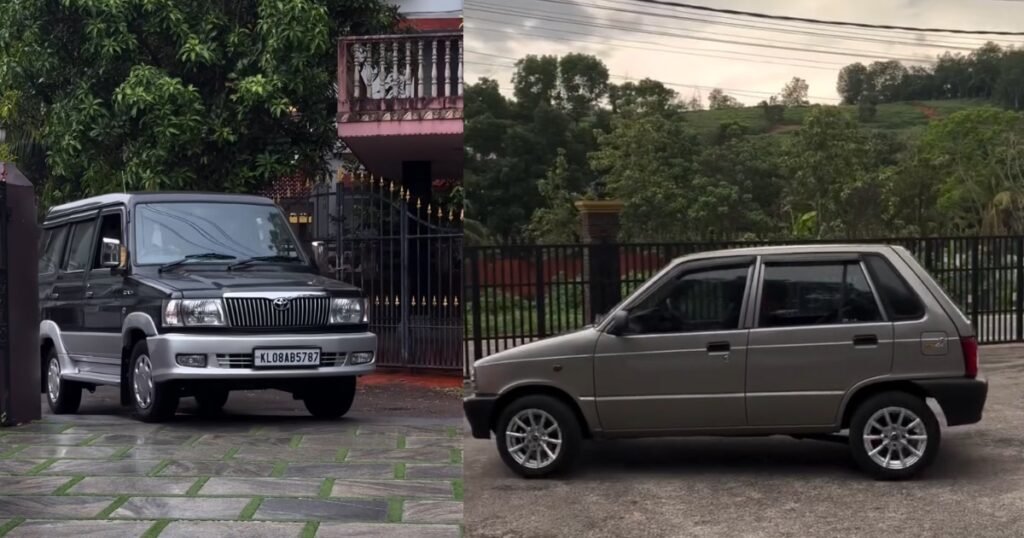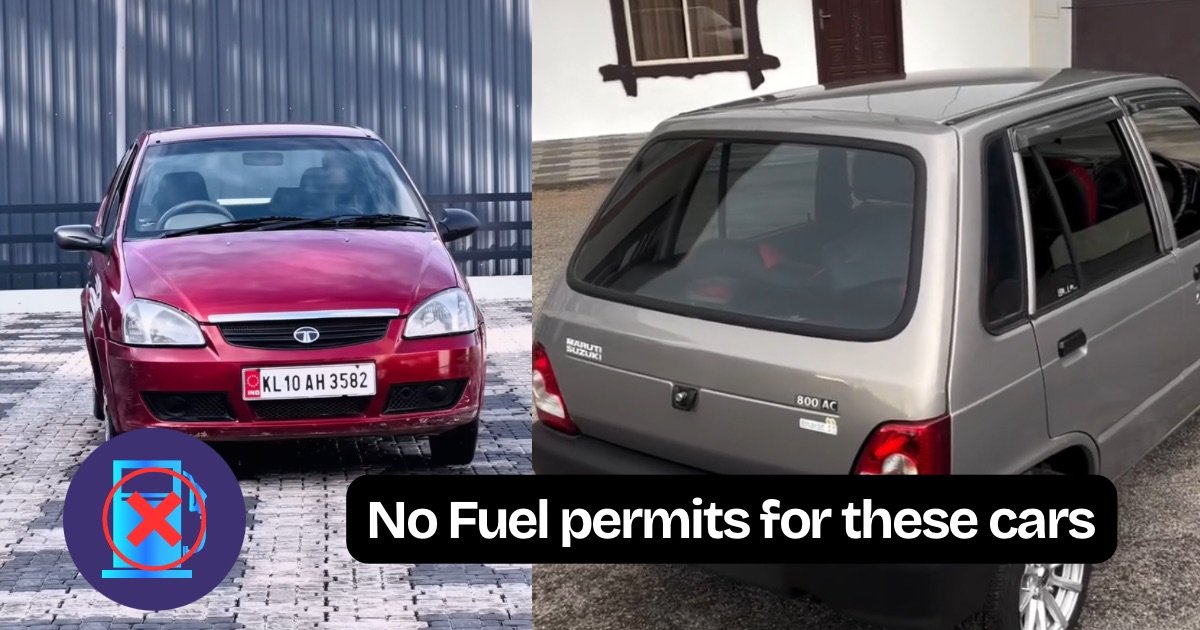Delhi Fuel Ban 2025: Diesel and Petrol Vehicles Face Strict Refuelling Restrictions from July 1st
As part of an aggressive crackdown on vehicular pollution, the Delhi fuel ban 2025 comes into effect on July 1, 2025, triggering a major shift in how the national capital deals with old vehicles. From that date, fuel stations across Delhi will no longer provide petrol or diesel to diesel vehicles older than 10 years and petrol vehicles older than 15 years, regardless of where they are registered. This landmark move, aimed at reducing toxic emissions, impacts lakhs of vehicle owners across the city.
Let me walk you through what this means for residents, commuters, and the future of mobility in Delhi and beyond.
Trending EVs India June 2025 Harrier EV, Mahindra BE 6, MG Windsor Leading
What Is the Delhi Fuel Ban 2025?
The Delhi fuel ban 2025 is a government directive under the combined authority of the Commission for Air Quality Management (CAQM) and the Delhi Transport Department. It marks the next phase of Delhi’s long-term effort to reduce air pollution caused by aged vehicles that lack modern emission-control technologies.
Key Aspects of the Ban:
Effective from July 1, 2025 in Delhi city limits.
Diesel vehicles over 10 years old and petrol vehicles over 15 years old will be denied fuel at all petrol and diesel pumps.
This rule applies to all vehicles, regardless of which state they are registered in.
CNG vehicles are currently exempt from the ban.
Two-wheelers and four-wheelers are both included in this regulation.

How Will the Delhi Fuel Ban 2025 Be Enforced?
Enforcement of the Delhi fuel ban 2025 will rely heavily on technology. Over 520 Automatic Number Plate Recognition (ANPR) cameras have already been installed at 500+ fuel stations across Delhi. These high-tech surveillance tools are designed to:
Instantly identify End-of-Life (EOL) vehicles.
Deny such vehicles from refuelling at the pump.
Notify enforcement officers in real-time for on-the-spot seizure and scrapping orders.
Once a vehicle is flagged, enforcement teams have the authority to impound it immediately and send it for scrapping under the Delhi government’s approved scrappage policy.
2012 Force One Ownership Review no major issues since 10 years
Petrol Pumps’ Role in the Ban
Fuel stations are now required to take on a more regulatory role under the Delhi fuel ban 2025. They must:
Display clear signage at pumps informing users about the fuel ban.
Keep a physical and digital log of vehicles denied fuel.
Submit weekly compliance reports to the Transport Department.
This partnership between fuel stations and the Transport Department ensures that the implementation of the Delhi fuel ban 2025 is uniform and consistent across the city.
Why Is This Ban Being Implemented?
Delhi has long suffered from hazardous air pollution, especially in the winter months. According to official data, over 62 lakh old vehicles are still operational in Delhi:
41 lakh of them are two-wheelers
18 lakh are four-wheelers
Many of these fall into the EOL category, contributing significantly to particulate matter (PM2.5) emissions, nitrogen oxide levels, and overall air toxicity.
The Delhi fuel ban 2025 is part of a broader strategy to reduce vehicular pollution by:
Phasing out older, more polluting vehicles.
Encouraging the use of CNG, hybrid, and electric vehicles.
Promoting cleaner air and better public health for Delhi’s residents.
Most Fuel Efficiency Petrol Cars in India 2025 read this before you buying a new car
What About NCR Cities?
The Delhi fuel ban 2025 is just the beginning. The rule will soon be extended to other NCR (National Capital Region) cities in a phased manner:
By November 2025: The ban will apply in Gurugram, Faridabad, Noida, and Ghaziabad.
By April 2026: The ban will cover the entire NCR region, affecting millions more vehicles across North India.
This regional rollout is expected to amplify the positive effects on air quality across state boundaries.
Public Reaction: Mixed Sentiment
A recent survey suggests that around 44% of vehicle owners in Delhi oppose the ban, citing concerns that:
Many older vehicles are still in good condition.
Not all owners can afford to upgrade to a new vehicle or an EV immediately.
The secondary car market may collapse for these age brackets.
Despite the resistance, government officials argue that the Delhi fuel ban 2025 is crucial to the city’s clean air mission. They stress that public health and environmental protection take precedence over individual inconvenience.
Penalties, Scrapping, and Exemptions
If a non-compliant vehicle is caught refuelling, the consequences are severe:
Immediate seizure of the vehicle.
Transport to certified scrappage yards.
Heavy fines may also apply.
However, there is some relief. Owners can:
Pay a penalty and submit an affidavit to retrieve their vehicle before scrapping, in certain cases.
Apply for special exemptions if the vehicle qualifies under historic, heritage, or diplomatic criteria.
Future of Transportation After Delhi Fuel Ban 2025
This sweeping regulation is expected to lead to a noticeable increase in:
Electric vehicle (EV) adoption, especially among ride-hailing fleets and individual car buyers.
Sales of CNG-powered and hybrid vehicles.
Growth in Delhi’s EV infrastructure, such as charging stations and service hubs.
Auto manufacturers and dealers have also started offering buy-back deals, exchange offers, and scrappage incentives to ease the transition.
Final Thoughts: Delhi Fuel Ban 2025 Is a Bold, Necessary Move
The Delhi fuel ban 2025 is one of the most ambitious anti-pollution initiatives in Indian urban policy. While it will inconvenience a portion of the population in the short term, its long-term benefits—in terms of reduced pollution, public health, and a transition to greener transport—could be game-changing.
If you’re a vehicle owner in Delhi, it’s time to check your registration date and seriously consider a switch to CNG or electric. Because come July 1st, Delhi will no longer fuel the past—it’s accelerating into the future.



